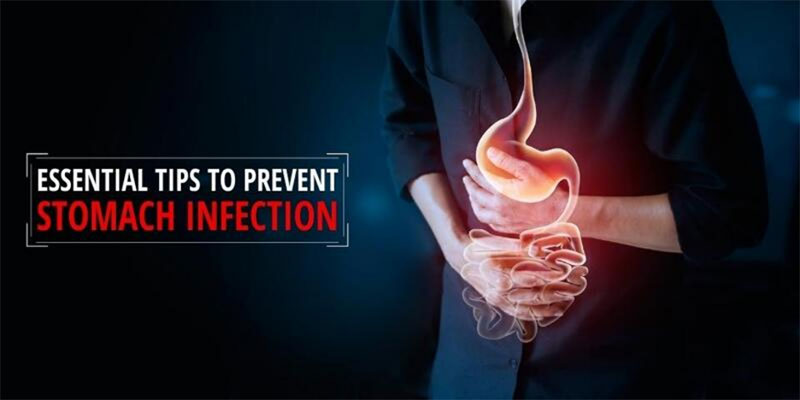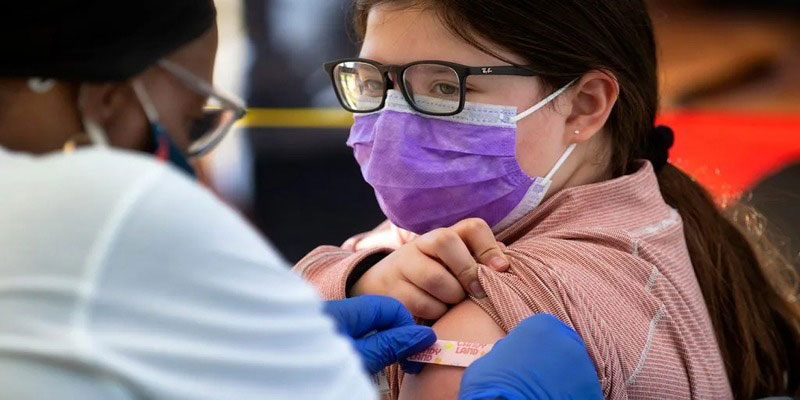Infections of the abdominal cavity may be caused by bacteria, viruses, or other pathogens and are referred to as abdominal infections. Diarrhea, as well as other symptoms including vomiting, nausea, stomach cramps, bloating, loss of appetite, as well as fever, is the hallmark of what is medically known as gastrointestinal infections. These infections usually clear up on their own within a few days. Still, if they persist, antibiotics and antiparasitic drugs may be necessary to address the underlying issue. Your doctor may do a lab test to determine what bacteria or virus is causing your symptoms, if necessary.
What Are Intestinal Infections?
Pathogens, including bacteria, viruses, and parasites, may cause a broad variety of abdominal illnesses that can damage various organs and tissues. In this group, you'll find infections of the digestive system. How dangerous an infection is will vary depending on its location and what organ it attacks. A "complex" infection has gone beyond the site of the initial infection, and it might cause serious complications such as sepsis (when the body's immune response begins to harm internal organs) as well as septic shock.
Different Types Of Gastrointestinal Infections
There are several methods to classify gastrointestinal illnesses. One method involves categorizing them according to the organism that most likely caused them. This may be anything from a bacterium or virus to a parasite. The site of infection is another defining characteristic of abdominal infections. Nosocomial infections, which originate in healthcare facilities, tend to be more dangerous than those acquired in other settings because they often contain bacteria that are resistant to antibiotics. Infections acquired in the community are not contracted in hospitals or other medical settings.
Gastrointestinal Infection Symptoms

The common signs of a gastrointestinal illness are those you may recognise from a bout of food poisoning. Diarrhea is the most typical, and it often comes with other symptoms, including stomach pain, nausea, vomiting, bloating, fever, and a loss of appetite. In most people, the duration of the symptoms is just a few days. When symptoms last longer than two weeks, it's time to see a doctor. Blood in the vomit or stools, headaches, weakness, chest discomfort, irregular pulse, disorientation, and weight loss are all symptoms of a severe illness. When you have diarrhea and vomiting, dehydration is always a possibility. This is a serious problem since it may be fatal. Depending on the source, symptoms may appear anywhere from 4 hours to 4 weeks following infection.
Causes
The majority of stomach bugs come from viruses. Norovirus (common on cruise ships) is the leading cause of stomach sickness in adults, whereas rotavirus is the leading cause in children. For kids, stomach bugs like adenoviruses are a common source of discomfort. Hepatitis A is another cause; it may be acquired via ingesting tainted food or water. Salmonella is the most prevalent bacterium responsible for gastroenteritis and may be found in tainted meat, poultry, fruit, and eggs. It can also cause typhoid fever. Pet turtles and iguanas have been responsible for infecting some owners.
Diagnosis
A medical diagnosis is often unnecessary when an abdominal or gastrointestinal illness clears up within a few days. Doctor visits often begin with the doctor answering your questions while performing a physical exam somewhere at the doctor's office. Sometimes, the root of an illness may be pinpointed through laboratory testing. These days, physicians often use molecular testing to detect microbes down to the molecular level and provide findings in as little as a few hours.
Treatment
There is usually no need to treat the many GI illnesses that clear up without medical intervention, and there is also no need to diagnose them. You're still in options. Replacement of fluids lost during diarrhea and vomiting may be achieved by consuming large amounts of water and other fluids. The same goes for 100% fruit juice, a fantastic potassium and salt source. Diets high in fat, fiber, or dairy might worsen symptoms, so when you're ready to eat, stick to bland meals like the BRAT (banana, grain, apple, toast) diet.
Prevention

Good hygiene, such as thoroughly washing one's hands after using the restroom, immediately before eating but rather preparing food, as well as frequently between, is the greatest defense against gastrointestinal illnesses. In the absence of soap and water, a sanitiser containing at least 60% alcohol should be used. It's very important to maintain clean bathrooms and kitchens.
Intestinal infections may also be avoided with careful meal preparation:
- Always wash your produce before eating it raw.
- Ensure that all meat is cooked completely.
- Any food that won't be eaten again should be refrigerated immediately after dinner.
- Routine cleaning is essential but particularly important after contact with raw meat or eggs.
- When you're on the road, it's best not to consume raw foods and to use bottled or boiling water for everything, including toothbrushing.
Conclusion
While molecular diagnostics have several benefits over conventional laboratory procedures, they are still mostly in their early stages of research and not commonly employed for gastrointestinal infections. Increased sensitivity and the ability to identify substances that will not develop in culture are two of molecular tests' key benefits.




